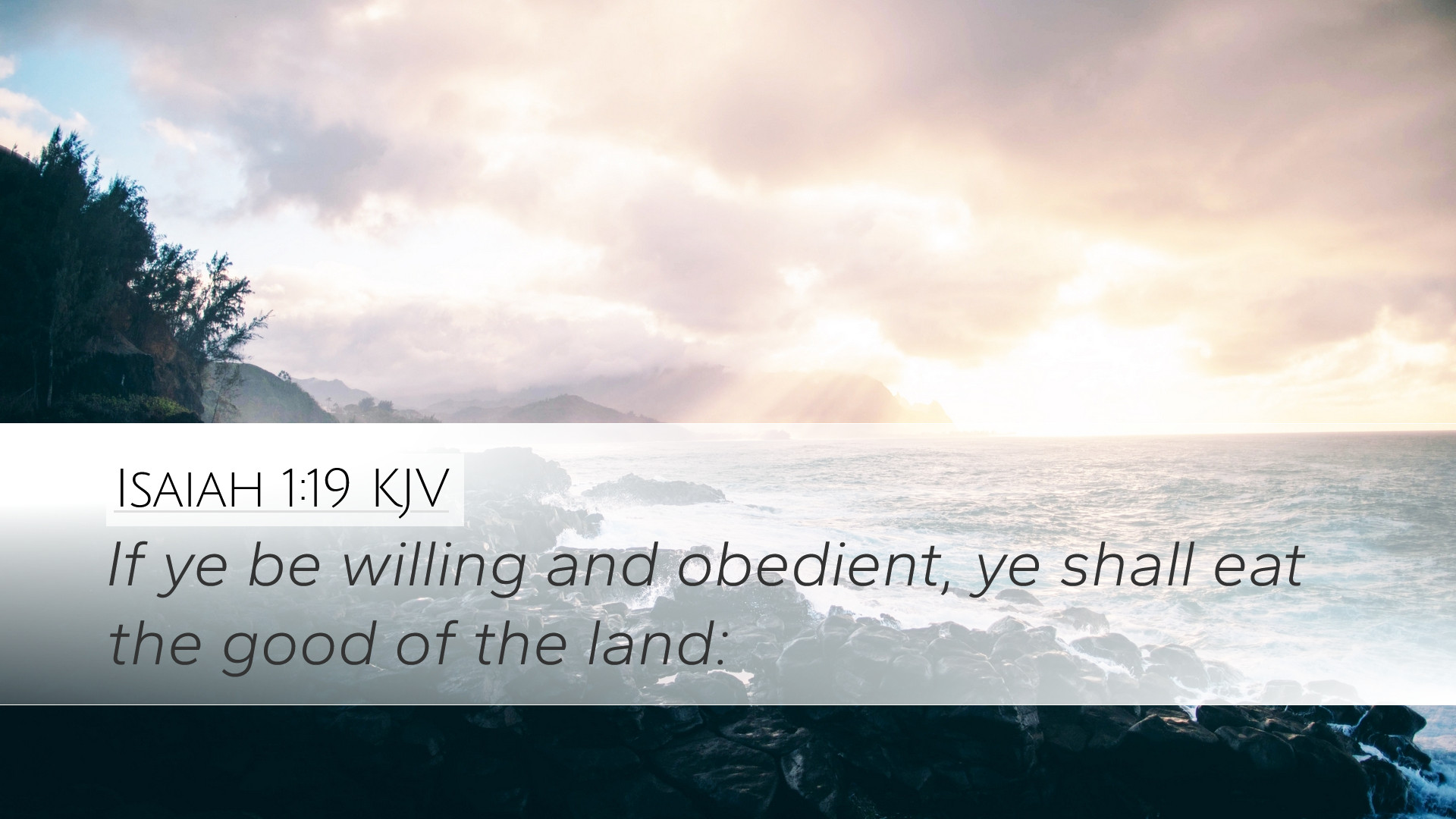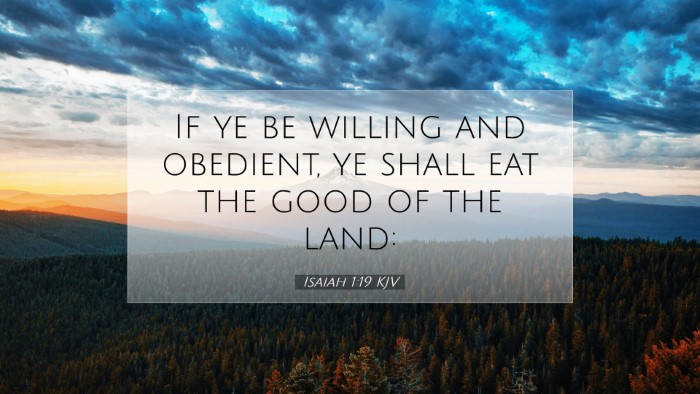Isaiah 1:19 Commentary
Verse: "If you are willing and obedient, you shall eat the good of the land."
Introduction
Isaiah 1:19 serves as a pivotal verse in understanding God's relationship with His people, emphasizing the theme of obedience and the blessings that follow. The prophetic literature often intertwines calls for repentance with promises of restoration, and this verse encapsulates that sentiment succinctly.
Exegesis of Isaiah 1:19
This verse is a conditional promise from God, suggesting that there are two key components to experiencing His blessing: willingness and obedience. The nature of the Hebrew terms used here reveals deep implications for understanding human agency in relation to divine favor.
Insights from Matthew Henry
Matthew Henry emphasizes the importance of willingness in the obedience required by God. He states, "God delights in a cheerful and free obedience, and expects his people to comply with his will not out of compulsion, but out of a willing heart." This highlights the grace of God, allowing for personal and volitional submission to His laws.
Moreover, Henry reflects on the phrase "the good of the land," explaining that God's blessings encompass not just material abundance but also spiritual richness and communal harmony. The land's goodness is contingent upon the people's relationship with God.
Insights from Albert Barnes
Albert Barnes offers a view on the societal implications of the verse, stating that “to eat the good of the land” refers to the sustenance and prosperity promised to the faithful. He draws attention to the historical context of the Israelites, who, despite experiencing hardship, are reminded of God's willingness to restore them if they heed His call.
Additionally, Barnes discusses the conditional structure of the promise, underscoring that divine blessings often correspond to human actions. He argues that the emphasis is placed on the connection between sin, disobedience, and resultant suffering, but with an unwavering hope for redemption.
Insights from Adam Clarke
Adam Clarke provides a theological analysis, asserting that “willingness” denotes a heart inclined toward God. He points out that the verse not only addresses individual obedience but also reflects on the corporate nature of the community of faith. Clarke argues that collective obedience results in collective blessings, hence emphasizing unity and shared stewardship.
Clarke also includes practical applications; he encourages believers to assess their relationship with God and mentions that genuine obedience must stem from love and gratitude, not mere duty.
Theological Themes
- Conditionality of God's Promises: This verse reiterates that God's blessings are often conditioned on human response, pointing to a covenantal relationship based on fidelity and obedience.
- The Depth of Obedience: True obedience encompasses a disposition of the heart—it is both a willing and active following of God's commands, reflecting the New Testament's emphasis on love as a fulfillment of the law.
- Restorative Promises: Isaiah articulates a profound assurance that despite the current state of disarray, joy and prosperity await those who return to God.
Application for Pastors and Theologians
This verse urges spiritual leaders to convey the significance of both willingness and obedience in their teachings. It serves as a reminder that, while God's grace abounds, there is a call to respond actively to that grace.
Moreover, when preaching this verse, pastors may wish to explore how congregations can foster a culture of readiness to obey God—highlighting the transformative power of collective faithfulness in the life of the church. The promise of "eating the good of the land" raises questions about what spiritual and communal well-being looks like in a contemporary context.
Final Reflections
Isaiah 1:19 is a timeless reminder of the relationship dynamics between God and His people. It encourages introspection regarding the state of our hearts in relation to God's will. As we comprehend the message of God's desire for willing obedience, it must compel us to live in a manner that not only seeks His blessings but also embodies His character in our community.
Ultimately, every reflection upon this verse should point back to Jesus Christ, who epitomizes perfect obedience and opens the way for all believers to respond to God's call with willingness and acceptable service.


